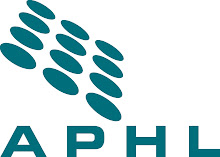As laboratory and epidemiology surveillance systems expand and improve, more foodborne outbreaks are being detected. Additionally, the vehicles responsible have become more diverse. Whereas the classic “church supper” and other point source outbreaks once made headlines, now fresh produce, peanut butter, veggie snacks and even reptiles have been implicated in localized and complex multi-state outbreaks.
New culprits, including ingredients that were overlooked years ago, are now being detected as the source of food contamination. In the past few weeks, public health officials have heightened surveillance for Salmonella in the wake of the recalls of hydrolyzed vegetable protein or HVP. HVP is a flavoring additive that has been widely used in the food industry. It is sometimes referred to on packaging as “natural flavors.” This additive is found in thousands of products ranging from snack foods, ready-to-eat products (hot dogs, for example) soups, sauces and other processed foods. This recall may be the largest to date. (List of recalled foods.) Although no human illness has been associated with the recalls to date, the implicated strain of Salmonella was found at a food flavoring processing plant in Nevada.
APHL continues to support member laboratories on foodborne surveillance networks such as PulseNet. This laboratory-based surveillance system detects clusters of foodborne illnesses by using DNA fingerprinting technology. APHL supports member laboratories in the PulseNet network to improve surveillance though trainings, technical meetings, information dissemination, and grants.
This recall demonstrates the critical importance of the public health laboratory system and the need for maintaining and expanding food safety surveillance networks. By catching contamination more quickly, labs are able to prevent widespread outbreaks of foodborne illnesses; another important way that public health laboratories are keeping you healthy.
Tuesday, April 6, 2010
Subscribe to:
Post Comments (Atom)





No comments:
Post a Comment